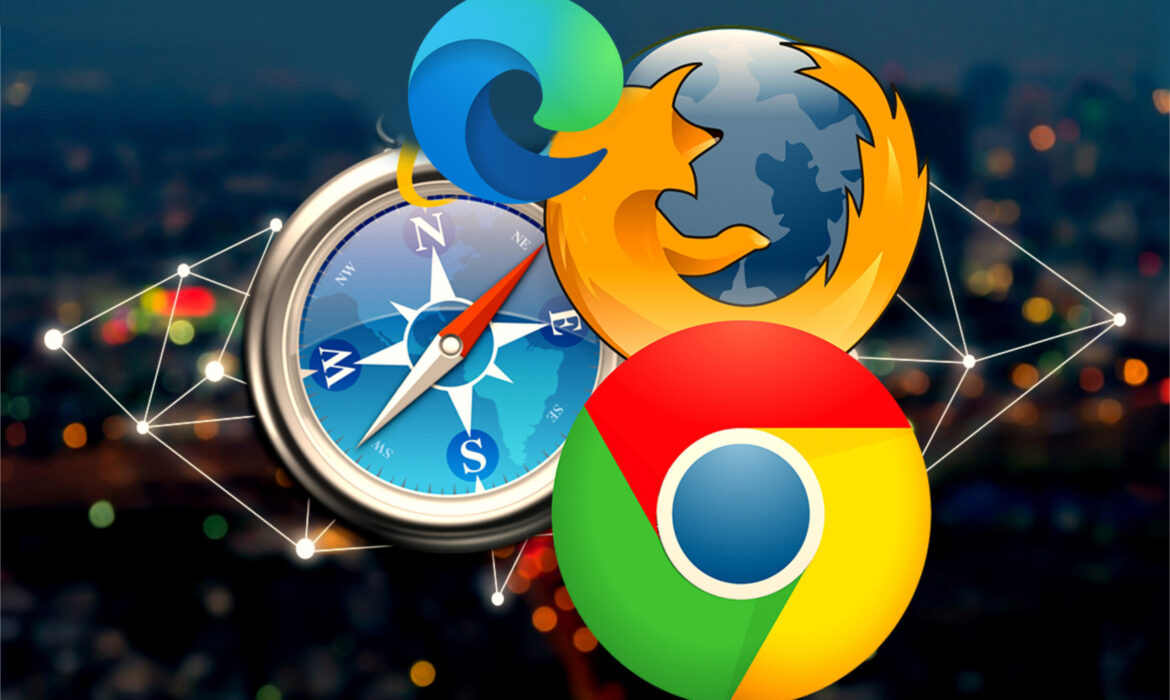India Launches IWBDC In a Drive For “Aatmanirbhar Bharat”
The Ministry of Electronics and Information Technology (MEITY) has announced the launch of the Indian Web Browser Development Challenge (IWBDC) in its stride towards “Aatmanirbhar Bharat” (self-reliant India). The program’s goal is to promote locally created web browsers that will compete with popular options like Google Chrome, Mozilla Firefox, Opera, etc. A Controller of Certifying Authorities (CCA) India root certificate will be built into the web browser, to be used on a worldwide scale. MEITY, CCA, and C-DAC Bangalore will be in charge of overseeing the cash grant of Rs. 3.41 crores that the IWBDC has secured.
🚨 India to develop own browser to take on Chrome, Firefox in new Atmanirbhar bid.
MeiTY has launched the Indian Web Browser Development Challenge and plans on launching its own internet browser.
— Indian Tech & Infra (@IndianTechGuide) August 10, 2023
The goal of the challenge is to promote India’s digital autonomy by creating an indigenous Indian web browser. The Digital India movement changed India’s functioning by empowering its people, growing the economy, and improving government in general. The promotion of indigenous inventions is essential to achieving the goal of a self-sustaining, digitally savvy India as the nation embraces technology.
The recommended browser will put a strong emphasis on usability and accessibility. Additionally, it will include built-in support for those with a range of skills. The browser also sees the option to use crypto tokens to digitally sign documents, which will increase the safety of online interactions and transactions.
A digitally sufficient India
The CCA is essential in assuring the integrity and reliability of digital certificates issued in India. Additionally, it permits nationwide secure and encrypted electronic transactions. However, India has relied on SSL certificates generated by Roots of foreign organizations for SSL certifications. To circumvent this obstacle, a browser with an integrated India Root Certificate will be helpful.
According to the release, the IWBDC will be a free contest to develop a native web browser. It will have advanced functionality, its own trust store, and improved security and data privacy features. India will gain leverage in negotiations with US browser providers such as Chrome and Firefox to accept India’s online security certification authority with this scheme.
Trust stores or root stores of web browsers contain a list of certified authorities. As of right now, neither Firefox nor Chrome’s root stores contain India’s official certifying body.
The Indian Web Browser Development Challenge
Mr. Arvind Kumar, the Controller of Certifying Authorities, spearheaded the launch in New Delhi. He stressed its importance in light of India’s recent decision to create its own browser. He also emphasized that as one of the fastest-growing economies in the world, India should stop using foreign browsers and lessen its dependency on foreign technologies. The suggested browser will follow international guidelines and protect sensitive data.
The competition’s open format is anticipated to produce the greatest results. The MeitY sponsorship is expected to encourage development of an Indian Web Browser that incorporates security features, plugin interfaces, and cutting-edge industry standards. The browser will be created for all major devices and platforms.
Participants will include tech startups, MSMEs, companies, and LLPs constituted under the Companies Act 2013 as well as Indian tech startups. The firm must have a threshold of 51% of its shares owned by Indian citizens or people of Indian ancestry to be eligible. Furthermore, it must not be an affiliate of a foreign company.
India has a big internet market, and foreign browsers are vying for a piece of it. With a market share of 88.47% among its around 850 million users, Google Chrome leads the pack. This is followed by Safari with a market share of 5.22%. Microsoft Edge with 2%, Samsung Internet with 1.5%, Mozilla Firefox at 1.28%, and all other competitors combined at 1.53% lag behind it.
Native web browser development and rollout are anticipated to be accomplished by the end of 2024. Domestic entrepreneurs, academic organizations, and businesses have all received invites to take part in the initiative. Chosen pitches will receive support all the way through the course of production.
Here’s what government officials said
According to statements obtained by Moneycontrol, a government representative stated,
“The government will also play a role in facilitating the acceptance of domestic web browsers. These browsers should not only adhere to Web3 standards and facilitate digital signatures through cryptographic tokens but should also integrate native features such as support for Indian languages.”
Another official said,
“As the country sets on a path to become the third-largest economy in the world, it is important that we have control over our digital destiny. We don’t want to be dependent on foreign web browsers in areas where the security and safety of citizens is paramount… Atmanirbharta should be there in web browsers as well.”
Read More: Google Unveils Fresh Consent Management Rules for EEA and UK


